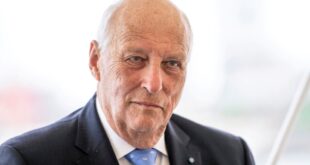European Commissioner for Values and Transparency Vera Jourova addresses the European Parliament plenary session in Strasbourg, France September 15, 2021. REUTERS/Yves Herman/Pool
Register now for FREE unlimited access to Reuters.com
BRUSSELS, June 22 (Reuters) – The United States should play a more active role in combating Russian propaganda and online disinformation because of the threat to democracy, European Commission Vice President Vera Jourova will say on Wednesday.
Jourova said information manipulation was a grossly underestimated weapon.
“Most of the time, it is quieter. It rarely makes a blast. And it is potentially even more dangerous, especially for democracies,” she will say in a speech to be delivered at the Atlantic Council in Washington.
Register now for FREE unlimited access to Reuters.com
Jourova said she wants to extend a hand to the United States to cooperate with Europe, according to the text of the speech seen by Reuters.
“I think that for the United States, as a cradle for both democracy 200 years ago and for the ‘dot com’ or tech revolution some 20 years ago, the time for no action is over,” Jourova will say.
“In the past, people said democracy dies in silence. Today, democracies may die in noise and cacophony.”
Washington has imposed sanctions against some state-run Russian TV stations, which it says have spread disinformation to bolster Russia’s war in Ukraine, which Moscow calls a “special military operation”.
Since Russia invaded Ukraine on Feb. 24, some Russian state media have been prevented from operating in the United States and some other Western states due to sanctions or withdrawal of their broadcasting licences, steps Moscow says show a disregard for media freedom.
Jourova said the United States and Europe should co-create a response to Russia’s propaganda and the digital Wild West, going beyond their cooperation in the G7 and the Trade and Technology Council, a newly set-up forum initially seen as a transatlantic counterweight to China, but now also focused on Russia.
“As a transatlanticist I see a big role for the U.S. to address these digital risks to democracy. We face similar problems, so it would make sense to find similar solutions,” Jourova said.
In terms of Europe’s efforts on the issue, Jourova cited tough new EU rules requiring Big Tech to crack down harder on fake news known as the Digital Services Act and the Code of Practice on Disinformation to which Alphabet Inc. (GOOGL.O), Facebook and Twitter (TWTR.N) have signed up.
Register now for FREE unlimited access to Reuters.com
Reporting by Foo Yun Chee; Editing by Nick Macfie and Bernadette Baum
Our Standards: The Thomson Reuters Trust Principles.
Source link



